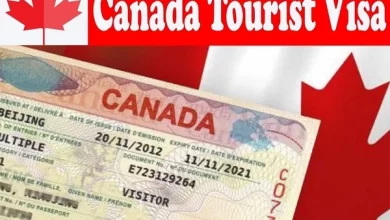Reasons for Canada Visa Rejection: Understanding the Factors that Impact Application Decisions
Applying for a visa to Canada is an important step in fulfilling your dreams of visiting, studying, working, or immigrating to the country. However, not all visa applications are successful, and it can be disheartening to receive a rejection. This article aims to provide insights into the common reasons for Canada visa rejection, helping applicants understand the factors that impact application decisions. By familiarizing yourself with these reasons, you can better prepare your application and increase your chances of success.
- Incomplete or Inaccurate Documentation:
One of the primary reasons for visa rejection is submitting incomplete or inaccurate documentation. The Canadian immigration authorities have strict requirements and guidelines, and failure to provide the necessary documents or providing incorrect information can result in a visa denial. It is crucial to carefully review the application instructions and ensure that all required documents are included and accurate.
- Insufficient Financial Resources:
Canada requires visa applicants to demonstrate that they have sufficient financial resources to support themselves during their stay in the country. This includes covering expenses such as accommodation, transportation, and daily living costs. If the authorities believe that an applicant does not have enough funds to support their stay, the visa application may be rejected. It is essential to provide clear and credible evidence of financial resources, such as bank statements, employment letters, or sponsorship documents, to avoid rejection on these grounds.
- Lack of Travel or Immigration History:
Another reason for visa rejection is a lack of travel or immigration history. The Canadian authorities may view an applicant with limited travel experience or no previous immigration history as a potential risk, as they may question the applicant’s intentions to return to their home country after their visit or the likelihood of compliance with visa regulations. To mitigate this concern, it is advisable to provide evidence of previous international travel or immigration history, such as valid visas, passport stamps, or residency permits.
- Inadequate Purpose of Travel:
The purpose of travel plays a crucial role in visa application decisions. If the Canadian authorities find the purpose of travel unclear, irrelevant, or not well-documented, the visa application may be rejected. It is important to clearly articulate your purpose of travel, whether it is for tourism, study, work, or family visit, and provide supporting documents such as invitation letters, enrollment letters from educational institutions, or employment contracts, depending on the purpose of your visit.
- Failure to Meet Health and Security Requirements:
Canada has strict health and security requirements for visa applicants. If an applicant is found to have a medical condition that poses a risk to public health or safety, or if they have a criminal record or pose a security threat, their visa application may be rejected. It is crucial to undergo the necessary medical examinations and provide accurate information regarding health and security matters.
- Lack of Ties to Home Country:
One of the concerns of Canadian authorities is whether visa applicants have sufficient ties to their home country to ensure their return after their authorized stay in Canada. If an applicant is unable to demonstrate strong ties, such as stable employment, property ownership, family responsibilities, or financial commitments in their home country, their visa application may be rejected. It is important to provide evidence of ties to your home country to assure the authorities of your intention to return after your visit.
- Inadequate Travel Insurance:
While not a formal requirement for all visa categories, having travel insurance is highly recommended when traveling to Canada. In some cases, visa officers may consider the absence of travel insurance as a potential risk factor and reject the application. It is advisable to obtain comprehensive travel insurance coverage that includes medical expenses, trip cancellation or interruption, and loss of belongings.
- Misrepresentation or Fraudulent Information:
Providing false or misleading information in your visa application is a serious offense and can lead to immediate rejection. The Canadian immigration authorities have sophisticated systems in place to detect misrepresentation or fraudulent documentation. It is crucial to be honest and transparent throughout the application process and provide accurate information, including details about your personal background, education, work experience, and travel history.
- Inadequate Proof of Strong Ties to Canada:
If you are applying for a temporary visa, such as a visitor visa, it is essential to demonstrate strong ties to your home country. The Canadian authorities want to ensure that you have a compelling reason to return to your home country after your authorized stay in Canada. If you fail to provide sufficient evidence of ties, such as family, employment, or financial commitments, your visa application may be rejected. It is crucial to highlight your commitments and responsibilities in your home country to assure the authorities of your intention to return.
- Failure to Meet English or French Language Requirements:
Depending on the visa category, the ability to communicate in English or French may be a requirement. For example, language proficiency is a key factor in the Express Entry system for skilled workers. If you fail to meet the specified language requirements, such as through language tests like IELTS or CELPIP, your application may be rejected. It is important to assess your language skills and, if necessary, improve them through language training programs before submitting your visa application.
Understanding the reasons for Canada visa rejection is crucial for a successful application. By addressing potential concerns such as incomplete or inaccurate documentation, insufficient financial resources, lack of travel or immigration history, inadequate purpose of travel documentation, failure to meet health and security requirements, lack of ties to the home country, and inadequate travel insurance, applicants can increase their chances of a positive visa decision. It is essential to carefully review the application requirements, provide accurate and complete documentation, and seek professional advice when necessary to navigate the visa application process effectively.

